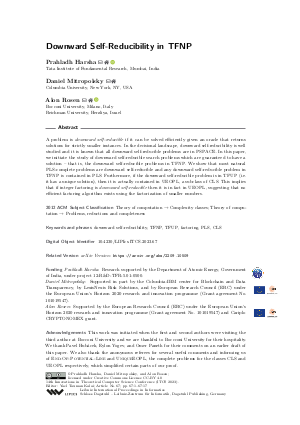LIPIcs.ITCS.2023.67.pdf
- Filesize: 1.96 MB
- 17 pages

 Creative Commons Attribution 4.0 International license
Creative Commons Attribution 4.0 International license



Feedback for Dagstuhl Publishing